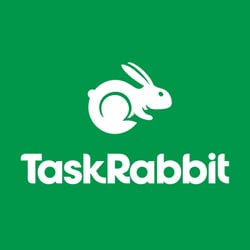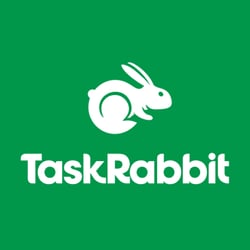Apache is functioning normally
Inside: Are you looking to achieve financial freedom? This guide teaches you the 12 habits you need along the journey. Learn how people changed their lives with simple steps of savings and minimized expenses.
Achieving financial freedom is often misconceived as simply accumulating great wealth.
However, as David Bach, a renowned financial expert and top-selling author emphasizes, “Financial Freedom is about a lot more than money, it’s about living a richer life.” Indeed, true financial freedom is not solely dictated by the figures in your bank account, but more by the ability to live life on your terms, unencumbered by financial restraints.
There are reasons financial freedom is a coveted goal for many. Having more than enough monetary resources to finance your desired lifestyle without being driven by the need to earn a certain amount every year can be liberating.
This post will explain financial freedom in-depth, its benefits, the keys, and simple strategies to attain it.
This post may contain affiliate links, which helps us to continue providing relevant content and we receive a small commission at no cost to you. As an Amazon Associate, I earn from qualifying purchases. Please read the full disclosure here.
What is Financial Freedom?
Financial freedom is understood in various ways depending on people’s personal goals and values. Essentially, it’s having ample savings, cash, and investments to live as desired, both presently and in the future.
Those who reach financial freedom find themselves in control of their money, not allowing it to control them. Imagine enjoying your favorite hobby, traveling, or simply relaxing without stressing about money.
That’s the essence of financial freedom.
Why is Financial Freedom Good?
Financial freedom is a game-changer. It gives you complete control over your finances, allowing you to make choices that align with your values and long-term plans.
Financial independence reduces anxiety tied to unforeseen expenses and offers a safety net during unexpected hardship. It also allows you to work on your terms, pursue passions, take risks, and ultimately, leads to a more fulfilling and happier life.
This is something I can attest to when my husband was able to leave a toxic work environment on his terms.
What is the key to financial freedom?
The key to financial freedom lies in attaining financial literacy, prioritizing your goals, and cultivating good financial habits.
This involves setting and being adamant about your life goals, living within your means, saving diligently, investing wisely, diversifying income streams, and regularly reviewing and adjusting your financial plan.
Control over your finances and informed decisions pave the way toward financial freedom.
12 Simple Strategies for Financial Freedom
Achieving financial freedom requires strategic planning and disciplined execution. It’s not just about earning more, but about saving wisely, spending judiciously, and investing intelligently.
This section introduces you to key strategies for securing financial independence, illustrating their importance and demonstrating their role in paving the way toward a stress-free financial future.
Remember, financial freedom is not just about an affluent lifestyle, but about taking control of your finances, making your money work for you, and living a life on your own terms.
Something we emphasize around here at Money Bliss.
1. Set Life Goals
Setting clear, tangible life goals — both big and small, financial and lifestyle — is the first step towards achieving financial freedom. These smart goals form the backbone of your financial plan.
For instance, you may aspire to own a house, increase your liquid net worth, or retire early. The more specific your goals, with concrete amounts and deadlines, the higher the likelihood of achieving them.
2. Create a Monthly Budget
Creating a monthly budget is an instrumental step towards financial freedom.
- Start by taking account of all your income like your paycheck and expenses.
- Identify non-essential items you can cut down, and set money aside for emergencies and savings.
- Focus on mindful spending and curb the urge to splurge.
Following a monthly budget guarantees that all bills are paid, and savings are progressing at a solid pace. Get solid budgeting advice to help you get started.
3. Spend Less Than You Earn
To reach financial freedom, it’s fundamental to spend less than you earn. This tip may seem overly simple, but it lays the foundation for wealth accumulation.
I cannot stress this concept of spending less and saving more enough. By reducing discretionary expenses and embracing frugality where possible, you maximize savings.
This doesn’t mean an austere life but simply cutting back on unnecessary expenses to create more room for savings and investments.
4. Invest in Your Future
Investing is a path towards creating wealth for your future. Even small amounts invested wisely can have big results, thanks to the power of compound interest.
Whether it’s real estate, the stock market, or mutual funds, investing can generate an income stream and significant long-term growth. This also means increasing your financial literacy to bring direction and discipline to your investment journey.
Learn how to start investing 10K.
Trade & Travel
Learn to trade stocks with confidence.
Whether you want to:
- Retire in peace without financial anxiety
- Pay your bills without taking on a side hustle
- Quit your 9-5 and do what you love
- Or just make more than your current income….
Making $1,000 every.single.day is NOT a pie-in-the-sky goal.
It’s been done over and over again, and the 30,000 students that Teri has helped to be financially independent and fulfill their financial dreams are my witnesses…
5. Stay Educated on Financial Issues
Staying attentive to financial news and developments is crucial. Knowing current trends can aid in timely adjustments to your investment portfolio.
Staying educated on financial issues and increasing financial literacy is an effective step toward achieving financial freedom. This includes acquiring competencies in areas such as understanding debt, budgeting, keeping track of cash flow, and investing wisely.
From changes in tax law to swings in the stock market, keep informed to make well-rounded financial decisions. Remember, knowledge is your best protection against fraud or investing missteps.
6. Develop Passive Income Streams
In your hunt for financial freedom, developing passive income streams can be a great advantage.
Passive income refers to earnings derived from a rental property, selling printables, or other enterprises in which you’re not actively involved. This could be writing a book, starting a blog, or investing in stocks.
These income streams can dramatically boost your earnings and aid your journey to financial freedom.
7. Diversify Your Investments
Diversifying your investments is a key strategy to mitigate risk and potentially increase returns. Remember the statement of don’t put all of your eggs in one basket.
Portfolio diversification involves spreading investments across different asset classes – such as cash, stocks, bonds, and real estate. Diversification ensures downturns in a single area won’t devastate your finances.
The best tool to track your investments would be Empower and you can use it for free.
Empower
Empower offers powerful tools to help you plan your investment strategy along with basic budgeting features and a great net worth tool.
As a free app, Empower can help you to save money, save time, and even make more money.
Get Started
8. Maintain Your Property and Health
Maintaining your property and health is vital to your financial wellness. Regular care and maintenance for your properties, like homes and cars, help prevent expensive repair costs in the future.
Investing time and effort in your health, with regular doctor visits, a healthy diet, and exercise, prevents long-term costly health issues, securing your financial future. This is why I decided to share my spinal fusion journey to help others because your health is vital to your wealth.
This investment is integral to a life of financial freedom.
9. Build a Retirement Savings Plan
Building a robust retirement savings plan is a significant step towards financial freedom. Contributing to a 401(k) or an IRA can lead to tax advantages while saving for retirement.
Here is the key to success: don’t wait to start saving for retirement until you feel like you have extra money lying around. Because that will never happen.
Start simple by maxing out your Roth IRAs and contributing enough to your employer’s 401k to receive any matching. Initiate early and let the compounding interest work in your favor for a secure retirement fund.
10. Calculate Your Financial Independence Number
Your financial independence number is a benchmark for your financial freedom goals. I’ll be honest this is one of the hardest things to do is calculate how much you need to retire.
Recently, I had a conversation with someone who retired early and she said it is so hard to know how much you need and then also live off your savings.
However, calculating this FI number can provide a roadmap for your financial freedom journey.
11. Increase Your Income
Increasing your income can expedite your journey to financial freedom. Around here at Money Bliss, we stress the need for multiple streams of income.
- Consider asking for a raise, taking on more responsibility at work, or learning new skills to command a higher salary.
- Explore side hustles fitting your skills and interests. This may lead to a new career for you!
- And don’t forget about passive income.
Generating more income not only enhances your lifestyle today but also boosts your savings and investments for a financially free tomorrow.
12. Regularly Review and Adjust Your Financial Plan
Your financial plan is not a static document but a living, changing guide. As your life and goals evolve, so should your financial strategy.
Regularly reviewing your plan helps assess your progress, make necessary adjustments, and keep you focused on your financial freedom journey.
This is something you need to prioritize on your calendar.
Dealing with Debt in the Path of Financial Freedom
Our journey of student loans was deeply intertwined with our pursuit of financial independence as we wanted more money in our budget. This systematic approach not only expedited our progress but also instilled a discipline that prepared us for a future of responsible financial decisions.
While not easy, it is best to pay off debt sooner than later.
Prioritize Paying Off Debts
Addressing debt is imperative on your financial freedom journey. Prioritize paying off debts, particularly high-interest ones. This could mean scaling back your lifestyle temporarily.
You might find strategies like the debt snowball method, paying off the smallest debts first, effective. Or the debt avalanche as we chose. Find out which way to debt payments is best for your situation.
Clearing debts reduces monthly bills and creates more room in your budget for saving and investing.
Minimize Reliance on Borrowings
If you are consistently relying on debt methods to make ends meet, that needs to stop. Instead of taking loans for significant purchases, it’s more beneficial to accumulate savings first and then purchase in cash. For instance, when looking at car loans, the interest rate is pretty high, so this is a great example to save first.
This is backward of what most people do. However, it provides wise decisions with your money like having an emergency fund to fall back on.
Just to note… for most people, a mortgage may be cheaper than renting in their area.
Commit to Debt Free Living
Committing to a debt-free lifestyle is not about sacrificing everything today for tomorrow, but about making smarter financial choices. These include fully paying off credit cards each month, preparing a budget and sticking to it, and systematically paying off any existing debts.
Over time, these actions lead to a reduction or elimination of debt contributing significantly to your financial freedom.
Achieving Financial Freedom: Success Stories
There is no shortage of inspiring stories of people going from rags to riches or overcoming financial hardships to achieve financial freedom.
- One notable example is the story of Grant Sabatier, who went from having only $2.26 in his bank account to reaching financial independence in just five years.
- Similarly, Kristy Shen was an ordinary programmer who quit her job and, with calculated financial decisions, managed to retire as a millionaire.
- Farnoosh Torabi, a celebrated financial correspondent, was once overwhelmed by $30,000 in student loan debt. Through disciplined budgeting and effective money management, she was able to shake off the chains of debt and now leads a financially free life.
- Likewise, Robert Kiyosaki, the author of “Rich Dad Poor Dad,” started his journey with little and is now known for his financial education organization.
There are numerous success stories affirming the attainability of financial freedom. These success stories inspire and offer valuable insights into achieving financial freedom.
Frequently Asked Questions (FAQ)
Create Financial Freedom Journey for Yourself
Achieving financial freedom is a journey, not a destination. It demands consistent effort, discipline, and wise decision-making.
Every step you take towards reducing debt, saving, investing, or earning more income brings you closer to a life self-directed rather than dictated by economic constraints.
You have the opportunity to change your family’s future for many generations to come.
Although challenges will arise, remember, as Arthur Ashe once said, “Start where you are. Use what you have. Do what you can.” With determination, you can achieve financial freedom.
Start by learning to become financially independent and grow from there.
Did the post resonate with you?
More importantly, did I answer the questions you have about this topic? Let me know in the comments if I can help in some other way!
Your comments are not just welcomed; they’re an integral part of our community. Let’s continue the conversation and explore how these ideas align with your journey towards Money Bliss.
Source: moneybliss.org



